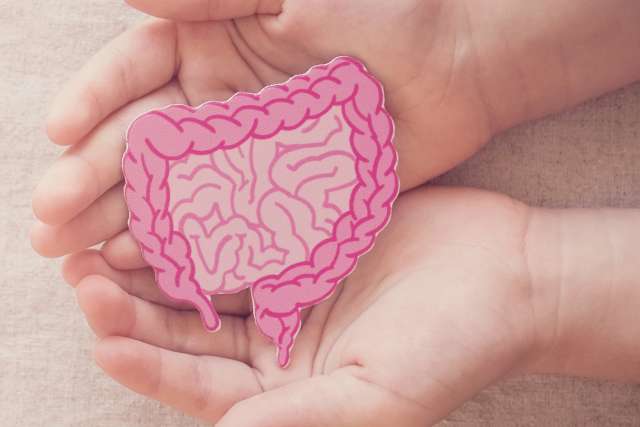Pediatric Intestinal and Multivisceral Transplant
As leaders in organ transplantation, UCLA Health delivers excellent surgical outcomes and comprehensive support. Your child receives outstanding care at every stage of life.

Why choose UCLA Health for pediatric intestinal transplant?
At UCLA Health, we provide exceptional medical and surgical care for your child, from the early stages of intestinal rehabilitation to transplant and beyond. Following a transplant, your child needs medications, regular checkups and follow-up care. We care for children as they grow. Highlights of our program include:
Unparalleled expertise: UCLA Health is one of just a few programs in the West — and among the premier programs in the world — for intestinal transplant. Since 1991, we have expertly performed multivisceral transplantation (transplant of the intestines, liver, spleen and stomach).
Personal attention: We address your child’s specific needs before, during and after an intestine transplant. Because we’re a small program within a large hospital, we have the time for you and the resources to deliver advanced care.
Transition to adult care: UCLA Health is one of the only transplant programs in the country that cares for patients from birth through adulthood, in the same hospital complex. This seamless transition reduces gaps in care and helps young people manage their health more effectively, resulting in improved well-being as they grow up.
Outstanding outcomes: World-renowned transplant experts offer state-of-the-art care. Our results are consistently excellent, with survival rates equal to or better than those of other leading programs.
Multivisceral transplant expertise: If your child needs another organ transplant along with an intestine transplant, you’re in expert hands. UCLA Health leads the nation in the latest techniques, and our pediatric liver transplant program is one of the largest in the United States. Learn more about UCLA Health pediatric liver transplantation.
Family-centered approach: The needs of a child receiving a new organ go far beyond transplantation. We engage the whole family and address your life outside the hospital — from social issues, diet and nutrition to medication management and more.
Our services
For children with intestinal failure, our care begins at diagnosis. We offer many nonsurgical and surgical options that may even help your child avoid the need for a transplant. Highly skilled specialists guide you along the way, from pre-transplant care to post-transplant support. We offer:
Comprehensive evaluation and rehabilitation
We begin with a thorough evaluation to assess your child’s overall health. Many children with intestinal failure need total parenteral nutrition (TPN) to receive essential nutrients. TPN is liquid nutrition provided intravenously (through a vein).
Our experts work as a team to reduce or eliminate the need for children to receive TPN. Using medications, dietary changes, nontransplant therapy and surgery, we help the bowel digest food and absorb nutrients. These treatments enable us to minimize complications of TPN and restore gut health. After intestinal rehabilitation, many children regain the ability to eat and can stop TPN. Intestinal rehab may even help your child avoid a transplant.
Expert transplant services
UCLA Health specialists have years of experience in intestinal transplantation. Our physicians deliver exceptional care that continues long after your child recovers from transplant surgery.
Seamless transition to adult care
Our intestinal transplant team cares for patients from birth through adulthood, in the same hospital complex. We help adolescents transition to adult care using a customized, flexible approach that focuses on each individual’s needs.
This period can be challenging for some young adults. As they juggle additional responsibilities and become more independent, some people find it difficult to manage their own health needs. We’re here to help young adults handle these changes.
Our specialized team includes a psychologist who focuses on adolescent transition issues. Together, we provide:
Consistent medical team: At UCLA Health, the same doctors typically treat your child throughout their life. This approach ensures coordinated follow-up care, guidance and support.
Developmentally appropriate care: We design a transition that works for your child. This tailored approach is vital, especially if your child needs additional support due to developmental delays or other issues.
Focus on your child’s needs: Our physicians and surgeons share information and collaborate on care based on your child’s health rather than their age. Patients can stay in our pediatric program as long as their needs or development demand.
Medication support: Transplant recipients must take antirejection medications throughout their lives. During the teen years, compliance can be difficult. Our experienced physicians, nurses, psychologists and social workers help teens and families create routines that work for them.
Experts at UCLA Health are exploring ways to eliminate the long-term need for anti-rejection drugs following a transplant. We offer an immunosuppression-free kidney transplant procedure to eligible patients, and our goal is to expand the program to include other organs as well. Learn more about the kidney transplant tolerance program.
What causes intestinal failure?
The small intestine absorbs food, liquids and essential vitamins. If it doesn't work properly, then children can't get the nutrients they need to grow. Several conditions, disorders and injuries can cause intestinal failure. These include:
Short bowel syndrome (short gut syndrome): The most common reason for intestinal transplant is short bowel syndrome. In short bowel syndrome, part of the intestine is missing due to a congenital (present at birth) condition.
Disease or injury: Some children develop an intestinal problem shortly after birth. These problems may include volvulus (twisted intestine) or an inflammatory condition called necrotizing enterocolitis. Other conditions, such as genetic disorders and motility disorders (problems with how food moves through the intestines) can lead to intestinal failure.
Trauma: Children can experience injuries that affect the intestines. Trauma such as seatbelt injuries, gunshot wounds or stab wounds can damage the intestines.
Is your child a candidate for pediatric intestinal transplant?
Intestinal transplant is the last resort for children who can’t get the nutrition they need from total parenteral nutrition (TPN). Children doing well on TPN are not candidates for intestinal transplantation.
A child who is a candidate for an intestinal transplantation has:
- Intestinal failure
- Doctor’s diagnosis that the remaining intestine will not be able to function
- Severe, life-threatening complications related to TPN, such as:
Central venous catheter (CVC) infections
Liver disease
Loss of CVC sites
Severe fluid and electrolyte imbalances
Severe porto-spleno-mesenteric vein thrombosis (clotting)
Certain tumors of the intestine or mesentery (tissue that holds your intestine in place)
At UCLA Health, our team works with you to determine if transplantation is the right treatment for your child. Our experts are by your side to discuss your child’s options, explain procedures and decide on the most appropriate plan.
Intestinal failure treatments we offer
We work as a team to deliver a wide range of nonsurgical and surgical options to treat intestinal failure. Our coordinated care focuses on the needs of your child while improving their overall health. We specialize in:
Intestinal rehabilitation
Intestinal rehab improves the function of the small bowel so it can absorb essential nutrients. Your child’s rehab plan may include medications, a special diet, surgery or a combination of these treatments. Intestinal rehab can:
- Reduce or eliminate the need for TPN
- Prevent complications from TPN, which can include electrolyte imbalances, infections and liver disease
- Help your child avoid a transplant
We explore every avenue of rehabilitation and treatment for children who have short bowel syndrome (short gut), intestinal failure or conditions that cause intestinal failure. Your child typically works with the same rehab team throughout the process. The team includes registered dietitians who have specialized expertise in gut health and digestive disorders.
Nontransplant therapy for small bowel syndrome
For some children, we can resolve short gut or intestinal failure with treatments other than transplant. Your child may have surgical or nonsurgical treatment options including:
Central venous access and stoma care: Our expert surgeons can provide long-lasting intravenous (IV) access for TPN. We also perform precise surgeries to improve access and waste removal, including stoma management.
Intestinal lengthening: Specialized gut-lengthening surgeries may eliminate the need for an intestinal transplant. The procedures we offer include serial transverse enteroplasty procedure (STEP), even for children.
Parenteral nutrition support: Expert nutrition management can help your child live a healthy life. We offer specialized consultation, with specific expertise in lipid emulsion formulations. Lipids (fats) are important for maximizing nutrition and overall health in people with intestinal failure.
Surgical reconstruction: For some children, reconstruction can create a functioning intestine, making transplant unnecessary. We offer surgical reconstructive techniques developed from years of experience.
Intestinal transplant and multivisceral transplant
At UCLA Health, our highly skilled surgeons perform transplants with unmatched expertise. We specialize in:
Intestinal transplant (small bowel transplant): Surgeons remove and replace part of the small intestine.
Liver and intestine transplant: Surgeons remove the small intestine and liver, replacing them with healthy donor organs.
Multivisceral transplant: Surgeons replace the intestines, liver, spleen and possibly the stomach.
Comprehensive support
If your child needs a transplant, we offer a complete array of support services. At UCLA Health, you benefit from our large pediatric transplant program, which includes many services for families. Social workers, Child Life Specialists and support groups help children receiving a transplant and provide crucial support for their families.
Meet our team
Our experienced team includes world-renowned transplant surgeons with specialized expertise in pediatric intestinal and multivisceral transplants. Your child receives well-rounded care and support from registered dietitians, psychologists and experts in intestinal rehabilitation.
Transplant Surgery
Transplant Hepatology
Contact us
At UCLA Health, you’ll have a dedicated team of pediatric transplant experts by your side every step of the way. Call to connect with us.
Find your care
At UCLA Health, you have a dedicated team of pediatric transplant experts by your side every step of the way. Call to connect with us.



